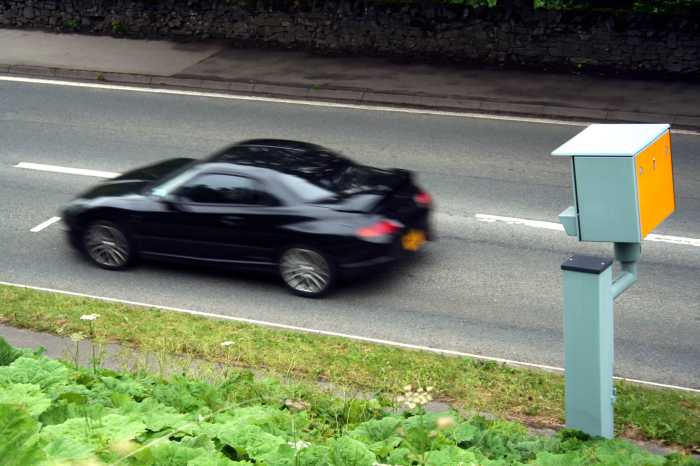Antigua
Police are advising the business community and members of the public in Antigua and Barbuda to be on the lookout for bogus currency notes.
There are reports of counterfeit currency that are now in circulation on the island.
Police Inspector Frankie Thomas said the public had been forewarned to be on the lookout for illegal tender that are usually circulating during the festive seasons.
The counterfeit notes that are reportedly in circulation are ECD$100 and $50 notes.
Inspector Thomas said he is aware of the effects of counterfeit notes have on victims and assured the public that it is on an ongoing mission of the police department to arrest and charge these fraudsters.
The Eastern Caribbean Central Bank has reminded the public that counterfeit notes do not have any value and it is a criminal offense to try and pass them.
Many businesses have complained of having received the fake notes.
Barbados
Barbados’ international reserves have fallen to Bds$635.5 million, which was equivalent to an estimated 9.7 weeks of import.
This is according to the Central Bank of Barbados (CBB) in a review of the island’s economy over the past six months.
The CBB said the decline in the foreign reserves, which was on par with the corresponding period in 2016, reflected in part a weaker external current account balance over the first six months of 2017, as higher international oil prices contributed significantly to a 44 percent increase in the value of imported fuel.
The bank said in addition, retained imports of consumer goods and capital goods increased by an estimated 1.8 and 7.3 percent respectively.
It said that the financial account recorded a surplus of Bd. $119.5 million for the first six months of 2017, which was Bds$66.5 million greater than that of the same period last year.
In its review, CBB said that the financial system in Barbados remained stable and liquid during the first half of the year.
Guyana
The Bank of Guyana has advised that only banks (authorized dealers) and non-bank cambios licensed under the Dealers in Foreign Currency (Licensing) Act 1989 are authorized to buy and sell foreign exchange.
In a statement the Central Bank said, the Dealers in Foreign Currency Act (licensing) Act 1989 states that foreign currency can only be bought and sold from a licensed dealer.
Section 17 (1) of the Act states that “any person, who sells to any person other than a license or authorized dealer who buys foreign currency, shall be liable on summary conviction to a fine and imprisonment of one year.”
Section 17(2) states that “any person not being an authorized dealer who buys or sells any foreign currency, shall be liable on summary conviction to a fine and imprisonment of three years.”
The Bank of Guyana notes with concern that foreign exchange activities are being conducted outside of the official legal system and emphasizes that any person caught contravening the Dealers in Foreign Currency (Licensing) Act 1989 will be prosecuted.
Jamaica
Employment in Jamaica is said to be at an all-time high in the history of the country.
According to the Statistical Institute of Jamaica (STATIN) the number of persons securing employment peaked at a historic 1,204, 800 in April 2017, which was 35,800 more than the 1,169,000 persons employed in April 2016.
The out-turn bettered the employment level of 1,187,000 in July 2016, when the country recorded the lowest unemployment figures in five years and the highest employment between April 2016 and April 2017.
STATIN data also showed that the unemployment rate fell by a further 1.5 percent in April 2017 to 12.2 percent relative to April 2016.
This translated into a reduction in the number of persons who were unemployed from 184,900 in April 2016 to 166,700 in April 2017.
Senior Technical Advisor at the Planning Institute of Jamaica, Rochelle Whyte has attributed the positive labor market trends to the ongoing implementation of economic reform measures by the government.
St. Lucia
St. Lucia’s cruise sector is making changes in time for the upcoming cruise season in December.
Chief Pilot at the St. Lucia Air and Sea Ports Authority, Nichalan Myers, said that as a result of the scope of the renovation work being undertaken at the Castries Harbor, the island will be in a position to welcome, for the first time to Port Castries, its largest vessel — Royal Caribbean’s Anthem of the Seas. The vessel measures 340 meters, 10 meters longer that the regular scheduled vessels.
He said also the existing vessels which are coming will visit the island on a regular basis, one of which has never been to Pointe Seraphine.
Several mega vessels are also expected to be part of the December schedule.
According to Myers, construction work on the Point Seraphine Berth One Extension Project is progressing smoothly and will be completed on time.
The project is expected to be completed by December this year and will be formally handed over in January.
St. Kitts
St. Kitts and Nevis Prime Minister Dr. Timothy Harris is offering young people jobs if they should move away from a life of crime.
He said his administration is willing to provide a second opportunity to them and is guaranteeing them a job if they should do so.
He told reporters: “This is the solemn guarantee I make” adding “I would guarantee you a job that you could earn at least a weekly wage if you are serious about making a turn for the better.”
Harris, who is also the country’s national security minister, said there are career opportunities available in St. Kitts and Nevis for young people particularly school leavers, in the area of law enforcement.
“We are developing our forensic department, we need young people with expertise and experience in forensics, so there is a wide range,” he said.
The twin-island federation has been rocked by brazen criminal activities including murder within recent months.
The prime minister said his government is moving to implement policies aimed at curbing these activities, and job opportunities being made available to the unemployed.
Trinidad
Trinidad and Tobago’s Foreign Reserves have stabilized in July after 11 consecutive months of decline.
This is according to data released by the Central Bank last week. The country’s foreign reserves at the end of July was marginally up over the reserves figure of $8.735 billion in June.
The Central Bank data indicated that foreign reserves declined every month between August 2016 and June 2017.
In that period, the country’s foreign reserves declined from $10.266 billion to $8.735 billion, or by 18 percent.
In August 2016, the government received the proceeds of a US$1 billion US-dollar bond that was issued on the international market.
The July net foreign reserve position represents imports to cover 9.6 months, the same as the previous month.
— Compiled by Azad Ali






















